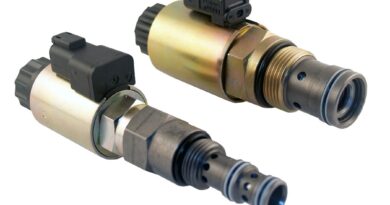How to overclock intel core i7 9700k – A Complete Guide
Measuring power consumption is always a challenge. Everything is fine as long as your 12V supply (EPS) readings, motherboard power supply sensor values, and voltage transformer losses all coincide. As a result, we’re using pure package power to avoid interference from our motherboard. When results from the PWM controller are taken as averages over a few minutes, they are very reliable. Hopefully, you will get to know about the pros and cons of the best purchases.
We conducted this round of limited testing in our U.S. lab, and our results are not directly comparable with numbers from previous reviews conducted in Germany. In this guide, you will get to know that how to overclock Intel core i7 9700k.
Know in-depth how to overclock Intel core i7 9700k.
Intel Core i7-9700K (64GB):
The Core i7-9700K consumes less power than the Core i9-9900K. In non-AVX and AVX stress tests, it draws less overclocked power than a stock Core i9-9900K. Remember that the overclocked Core i7-9700K and i9-9900K CPUs use AVX offsets that reduce the clock speed to 4.8 GHz during our Prime95 stress test.
Our Ryzen samples did produce some erroneous power results, which may have been caused by the motherboard’s sensor loop. We’re holding off on releasing Ryzen power figures while we figure out the problem.
To put our Core i7-9700K sample to the test, we used Corsair’s H115i v2. With a 1.345V Vcore and an Auto Load Line Calibration setting, this liquid cooler provided enough headroom to support a 5.1 GHz overclock. During non-AVX stress tests, it kept the chip at 70-74°C. Even though there was thermal headroom to spare, folding in AVX instructions resulted in failed stress tests. To get around this, we set the AVX offset to -3, which meant that the chip ran at 4.8 GHz during AVX-optimized workloads and 5.1 GHz when no AVX instructions were present. Using those settings, we maintained a temperature of 88-91°C for three hours of Prime95.
According to Silicon Lottery’s most recent statistics, 28% of the Core i7-9700Ks tested can reach 5.1 GHz or higher (though it only uses a -2 AVX offset and a higher 1.362V Vcore setting). Silicon Lottery reports that as of 10/28/18, all Core i7-9700Ks tested can maintain 4.9 GHz or higher. If you get a good chip, you can expect similar results from your sample.
Pros:
Eight cores excel at parallelized workloads
Single-threaded solid performance thanks to high Turbo Boost clock rates
Thermal transfer is improved by solder TIM.
Cons:
No bundled cooler means additional costs for enthusiasts
No Hyper-Threading Technology
High price
However, pricing is a bit of an issue. If you can find one at Intel’s suggested retail price, the Core i7-9700K costs $385. In comparison, the AMD Ryzen 7 2700X costs $329. The Ryzen also includes a capable cooler, whereas Intel requires you to pay for a high-end thermal solution. Without a doubt, the Core i7-9700K outperforms Ryzen in games. However, builders on a tight budget may opt for Ryzen to afford a faster graphics card. In some threaded application workloads, AMD’s CPU still has the advantage.
Just like us for those with enough budget, the Core i7-9700K is a much better choice than the pricey Core i9-9900K, offering comparable performance at a much lower price.
Intel Core i7-9700K (64GB)
In Intel’s lineup, the $385 Core i7-9700K sits between the $500+ Core i9-9900K and the $263 Core i5-9600K.
The -9700K, like all new K-series processors, is built on Intel’s 14nm++ process.
It has an integrated UHD 630 graphics engine, unlocked ratio multipliers for easy overclocking, and dual-channel DDR4-2666 memory support.
Intel has also doubled memory capacity support up to 128GB in response to increasing RAM density.
In-silicon mitigations for the Meltdown and L1TF (Foreshadow) vulnerabilities are also included in the -9700K.
Previously, Intel’s Core i7 series included Hyper-Threading technology, which allowed four- and six-core models to run eight or twelve CPU threads simultaneously. However, Intel removes Hyper-Threading from the 95W Core i7-9700K. Instead, the company provides you with an additional two cores. We would hypothesize that an 8C/8T -9700K should be faster than a 6C/12T -8700K in most workloads, assuming a 15-20% increase from HTT under ideal conditions. However, we already have the benchmark results to back up our hypothesis.
We’re fully confident our post would have helped you. Click here to know more about good motherboards for i7.
Conclusion:
In order to find out that the how to overclock intel core i7 9700k, you will have to do a bit of research. Hopefully, this article was helpful for you. We tried to help you in finding the best purchase of all time. You can still search for the best and top-notch ones on the Internet. Read out the reviews and you will find the best one.



